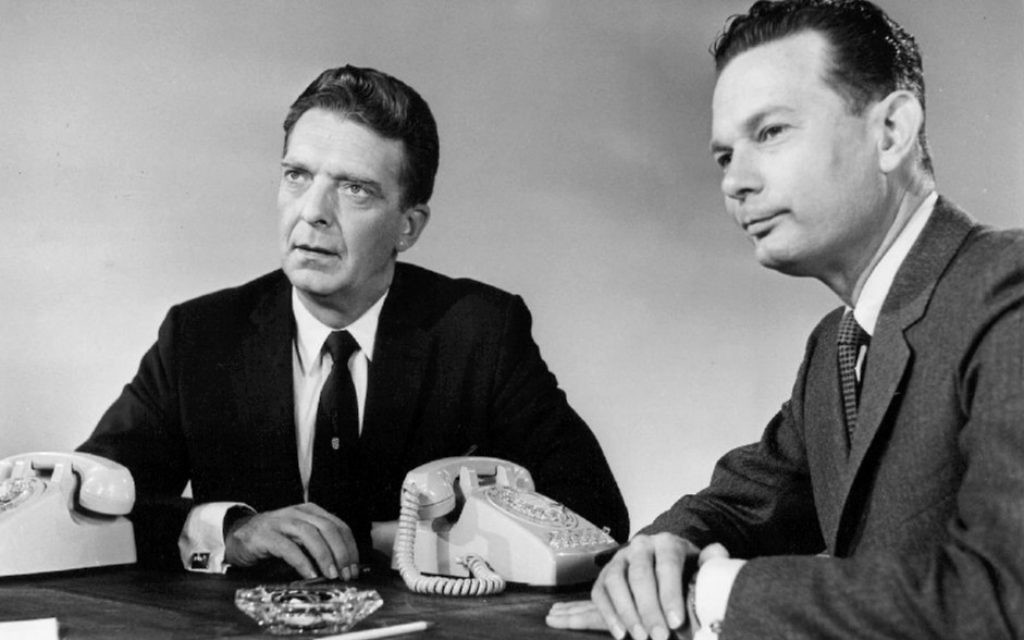Black and White Then, Shades of Gray Today
American Jews' views on the 1967 war and Israel have gained added nuance the past 50 years.

Monday, June 5, 1967, began my last week as a sixth-grader in a suburb north of Chicago.
I probably learned about Israel having gone to war from one of the dinner-hour, 30-minute newscasts, either Chet Huntley and David Brinkley on NBC or Walter Cronkite on CBS.
If I read more at the breakfast table Tuesday, it would have been in the Chicago Sun-Times, which we subscribed to, rather than the Chicago Tribune, which, in those years, was not considered friendly toward Jews.
Get The AJT Newsletter by email and never miss our top stories Free Sign Up
We belonged to a Reform congregation and regularly attended Friday night services, but Israel was not a frequent topic of conversation in our home, which was not uncommon for American Jews at the time.
Back then, Israel was that cousin you’d never met, the one your parents might have told you about but nonetheless kept at arm’s length, the one whose accent and manners didn’t fit in.
I remember looking at the world map in Mrs. Farrell’s sixth-grade homeroom and talking, perhaps boastfully, about Israel, which that week played David to the Arab nations’ Goliath.
In truth, I knew relatively little about Israel. It was small, Jewish and fighting for its survival — again.
My master class came in the mid-1980s as Jerusalem bureau producer for an Atlanta-based international news network.
Work took me throughout the country, from the “good fence” at Metula, along the Lebanon border, to Eilat, at the Gulf of Aqaba; from the Mediterranean to the Jordan River; inside the Green Line and throughout the “territories.” I talked to politicians and pundits, academics and students, police and protesters, merchants and their customers, residents of settlements and refugee camps, Israelis and Arabs, Jews, Muslims and Christians.
I found no easy answers to difficult issues, only shades of gray.
In June 1967, though, Israel became a black-and-white issue for American Jews.
“Two weeks ago, Israel was they; now Israel is we,” wrote the author of a letter published by the Village Voice on June 15, 1967, five days after the end of what became known as the Six-Day War.
Israel became that cool cousin, the one with the swagger, the one who couldn’t be bullied, the Jew who wouldn’t be a victim.
That was the Israel whose military exploits allowed American Jews to puff out their chests and express a kinship with the mishpacha 6,000 miles away.
Now, my brother the (Conservative) rabbi tells me that this is what he hears from the college students whose families are members of his congregation: “Why, after 50 years, has not this conflict (Israel and the Palestinians) been negotiated to a conclusion, when so many other world struggles have been concluded?”
Those inclined to believe that these young people are naive and/or ignorant will find confirmation and discomfort in the findings of a 2015 study of what college students know (or don’t) about Israel, done by the Maurice & Marilyn Cohen Center for Modern Jewish Studies at Brandeis University.
The oft-cited Pew Research Center 2013 survey of American Jews reported that just 43 percent considered “caring about Israel” to be “essential to what it means to be Jewish” and that this feeling was greater in those older than age 50 than those ages 18 to 29.
For many in the Jewish community, Israel has become that cousin you may have visited, the one you want to embrace, but the one who sometimes says and does things that upset and frustrate you, simultaneously drawing you near and pushing you away.
A half-century on from those “Israel is we” days, it seems reasonable to ask whether a significant portion (perhaps the majority) of American Jewry now adheres to a “post-Diaspora Judaism” in which Israel is an aspect of, but not central to, Jewish identity.
Those six days in June 1967 changed the relationship between American Jews and Israel. But five decades later, what I saw in black and white as a sixth-grader now appears in varying shades of gray.




comments